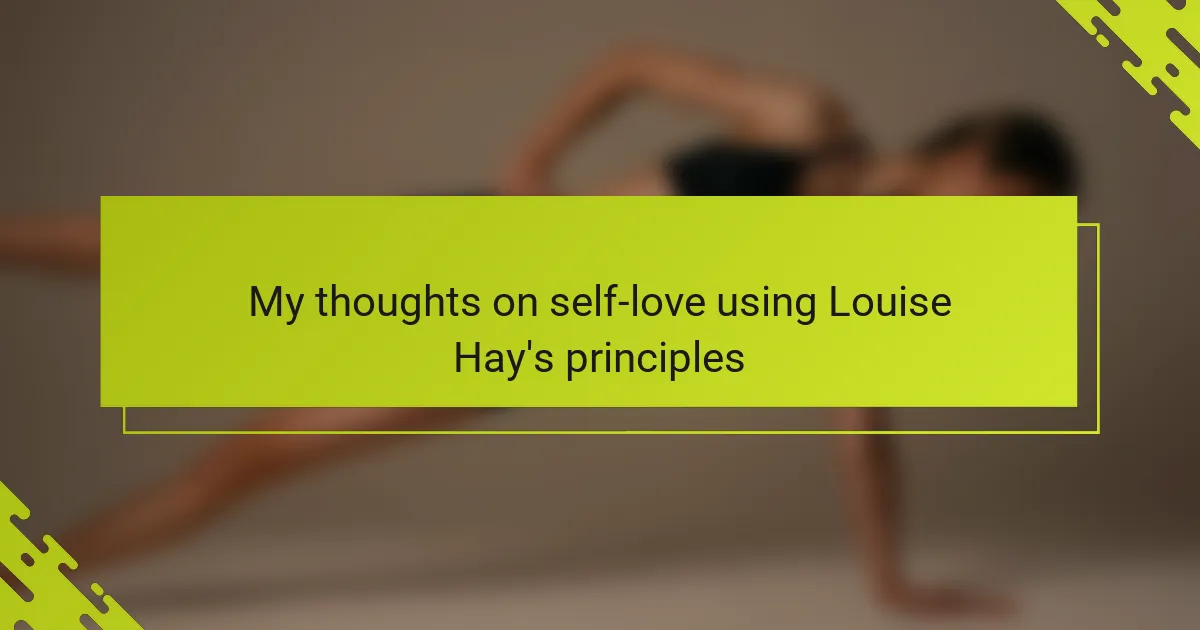Key takeaways
- Self-love is essential for well-being and should be practiced regularly through affirmations and self-compassion.
- Louise Hay’s teachings emphasize that our thoughts shape our reality, promoting healing through self-forgiveness and positive affirmations.
- Building self-love fosters stronger connections within communities, transforming individual journeys into collective support.
- Daily practices of self-care help counteract negativity and lead to resilience, making compassion an integral part of personal growth.
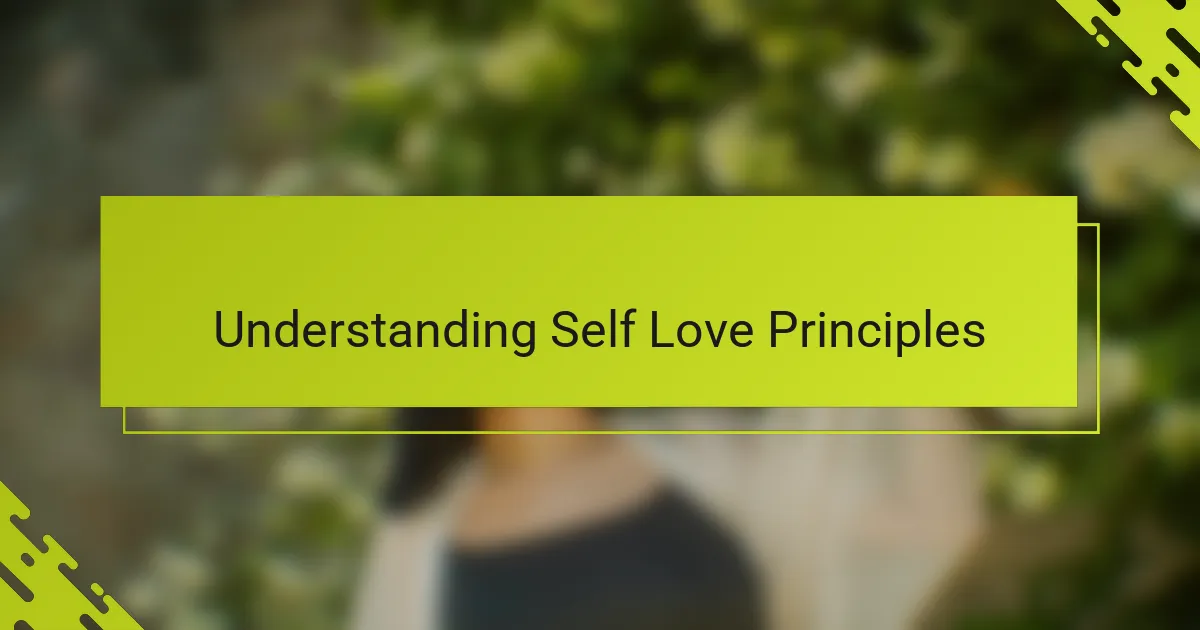
Understanding Self Love Principles
Understanding self-love principles means recognizing that caring for yourself is not selfish, but necessary. Have you ever paused to ask yourself what you truly need to feel whole? For me, embracing Louise Hay’s ideas helped shift that perspective—from criticism to compassion.
One of the core principles is affirming your worth regularly, which sounds simple but can feel revolutionary. When I began repeating affirmations, I noticed a subtle but profound change; it was like giving my inner voice a gentle hug during tough moments. This practice grounded me, reminding me that love starts from within.
I often wonder why we hesitate to treat ourselves with kindness while easily offering it to others. Louise Hay encourages us to challenge these limiting beliefs and replace them with nurturing thoughts. It’s a daily commitment, but it transforms doubt into confidence and loneliness into self-acceptance.
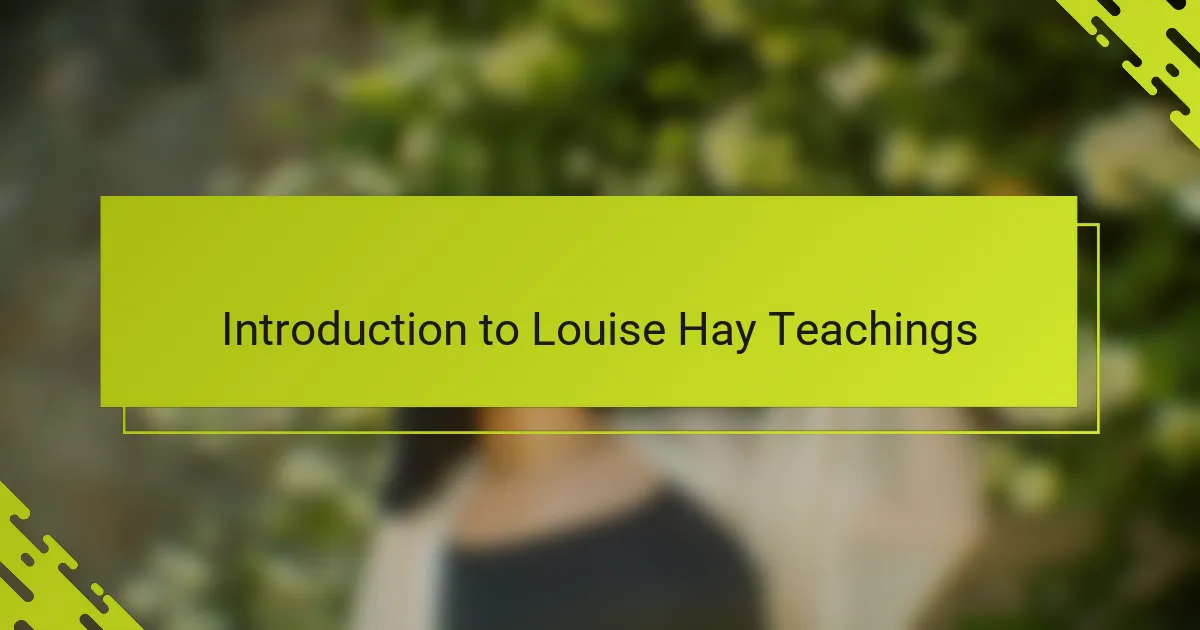
Introduction to Louise Hay Teachings
Louise Hay’s teachings center around the idea that our thoughts and beliefs directly shape our reality. I remember the first time I read her work, it struck me how often I blamed myself for things beyond my control. Her message? Heal your mind to heal your life—a simple yet profound invitation.
She emphasizes daily affirmations as a tool for reprogramming negative self-talk. At first, it felt awkward to say kind words to myself out loud, but gradually, those affirmations softened my inner critic. Have you ever tried telling yourself, “I am worthy of love,” and felt that shift in your chest?
Another powerful aspect is her belief that forgiveness, especially of ourselves, unlocks deep healing. I found this particularly radical—how often do we extend forgiveness outward but neglect the kindness we owe ourselves? Louise’s teachings remind me that self-love begins with embracing all parts of our story, flaws and all.
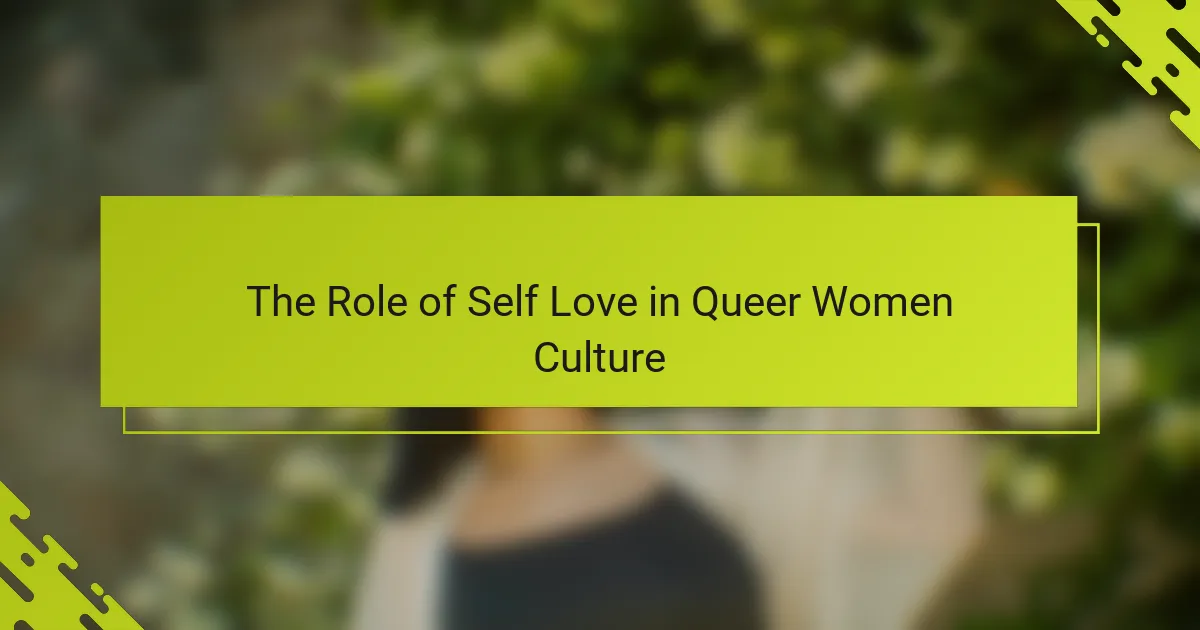
The Role of Self Love in Queer Women Culture
In queer women culture, self-love often serves as a radical act of resistance. I’ve seen how embracing Louise Hay’s principles can create a safe space within ourselves, countering the external stigma that many of us face. Have you noticed how affirming your worth shifts not only your mindset but also your sense of belonging in a community?
For me, practicing self-love within queer spaces feels like reclaiming parts of my identity that society tried to silence. It’s not just about feeling good—it’s about dismantling internalized negativity and honoring my experiences fully. I’ve found that when we nurture ourselves first, it ripples outward, fostering stronger, more authentic connections with others who share our journey.
Sometimes, I wonder if queer women’s culture would be as vibrant without this foundational work of self-love. It’s as if embracing Louise Hay’s teachings is a collective breath that invigorates the whole community. When each of us affirms our own worth, it becomes easier to celebrate the diversity and resilience that define us.
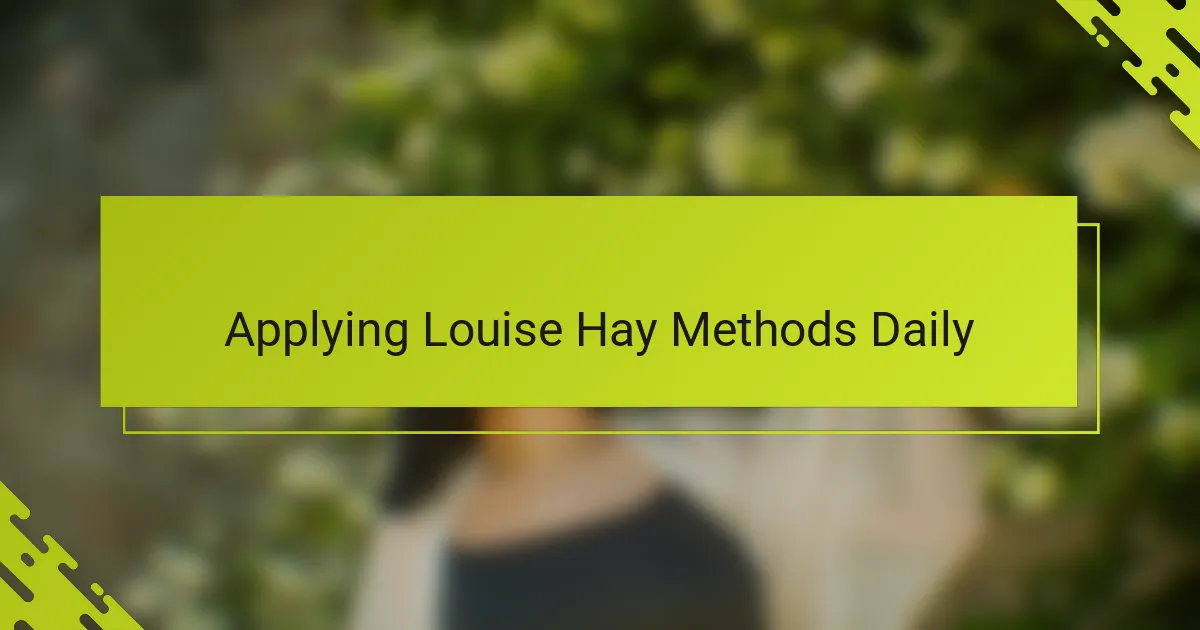
Applying Louise Hay Methods Daily
Using Louise Hay’s methods daily has become my anchor amid life’s chaos. I start my mornings with affirmations like “I deserve love and happiness,” and it feels like setting an intentional tone for the day. Have you ever noticed how just a few kind words to yourself can shift the whole energy around you?
Sometimes, I catch myself slipping into old patterns of self-doubt, but repeating Louise’s affirmations pulls me back gently—like a friend reminding me I’m enough. This daily practice isn’t about perfection; it’s about showing up for myself consistently, even on the hard days.
I also make it a point to pause and scan my thoughts throughout the day, catching negativity before it settles in. What’s interesting is how this habit makes me more aware of when I’m being harsh to myself, so I can consciously transform that into compassion. It’s a small shift, but it feels powerful and healing every single time.
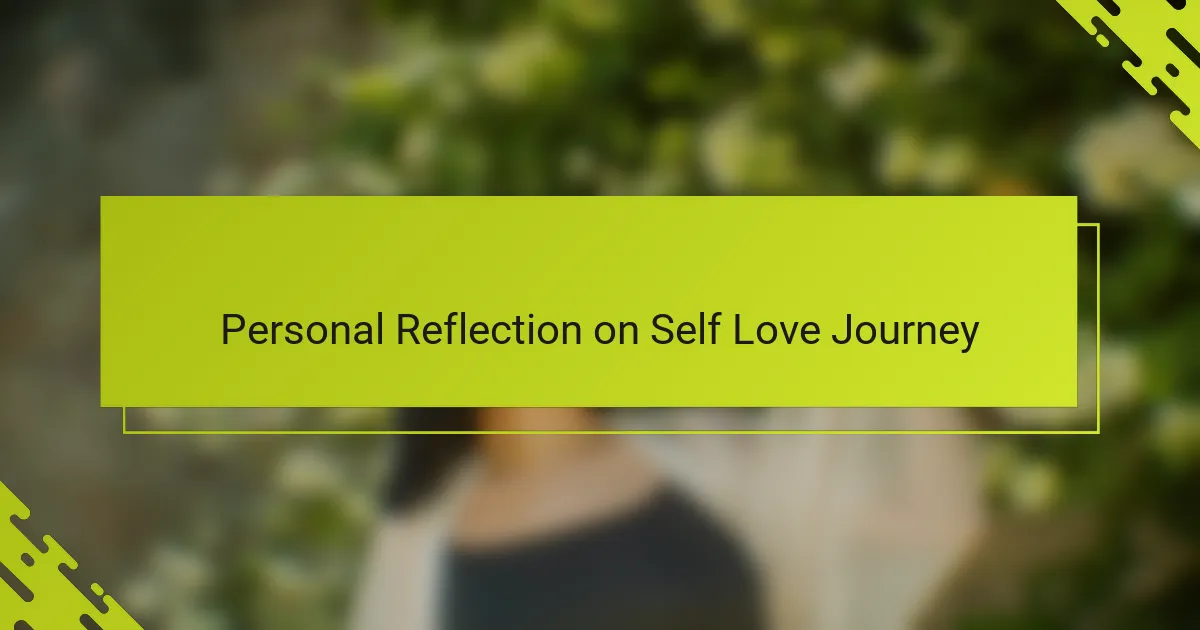
Personal Reflection on Self Love Journey
There was a moment not long ago when I realized how far I had come on this journey of self-love. I caught myself actually smiling at my reflection instead of racing past the mirror, and it hit me—this wasn’t just a habit, but a heartfelt acceptance growing inside me. Have you ever experienced that quiet turning point, where self-love stops feeling like an effort and starts feeling like home?
Sometimes, the path feels messy and uneven, especially when old doubts creep in, whispering that I’m not enough. But each time I gently counter those voices with Louise Hay’s affirmations, it’s like rewiring a worn-out blueprint of how I see myself. That persistence has been a game changer for me, transforming resistance into resilience.
I often ask myself, what does self-love really mean in day-to-day life? For me, it’s the small, consistent acts of kindness toward myself—choosing rest over hustle, forgiving mistakes instead of punishing, and trusting that I’m deserving of care. These moments might seem ordinary, but they’ve built a foundation that feels unshakeable.
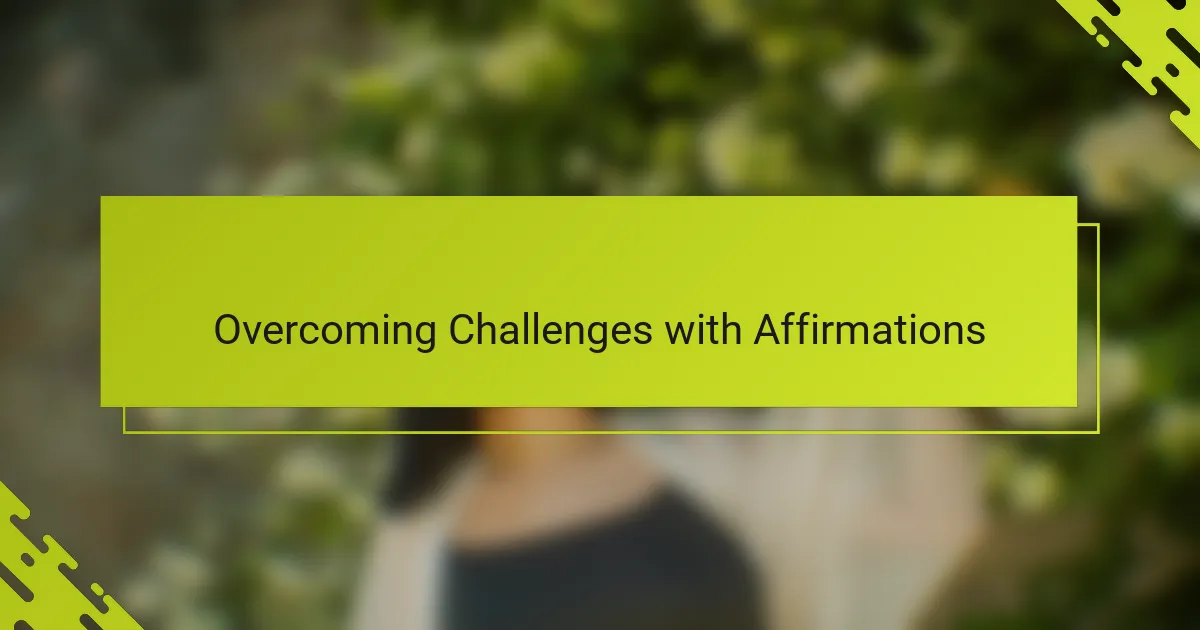
Overcoming Challenges with Affirmations
I remember a time when challenges felt overwhelming, and negativity crept in like an uninvited guest. Repeating affirmations such as “I am strong enough to overcome” became my lifeline—it was like planting a seed of hope amid the storm. Have you ever noticed how those simple phrases can slowly dismantle the loud doubts we carry inside?
Some days, I struggled to believe my own words, but the consistency mattered more than perfection. Each affirmation was a small rebellion against the fear that tried to hold me back. It felt less like forcing positivity and more like gently rewriting my story, one phrase at a time.
What amazes me most about this practice is how quickly it shifts my inner landscape. When I catch myself spiraling, saying, “I am deserving of peace,” acts like a bridge back to calm. Isn’t it incredible that these words, simple yet profound, can become the armor we wear in facing life’s toughest moments?
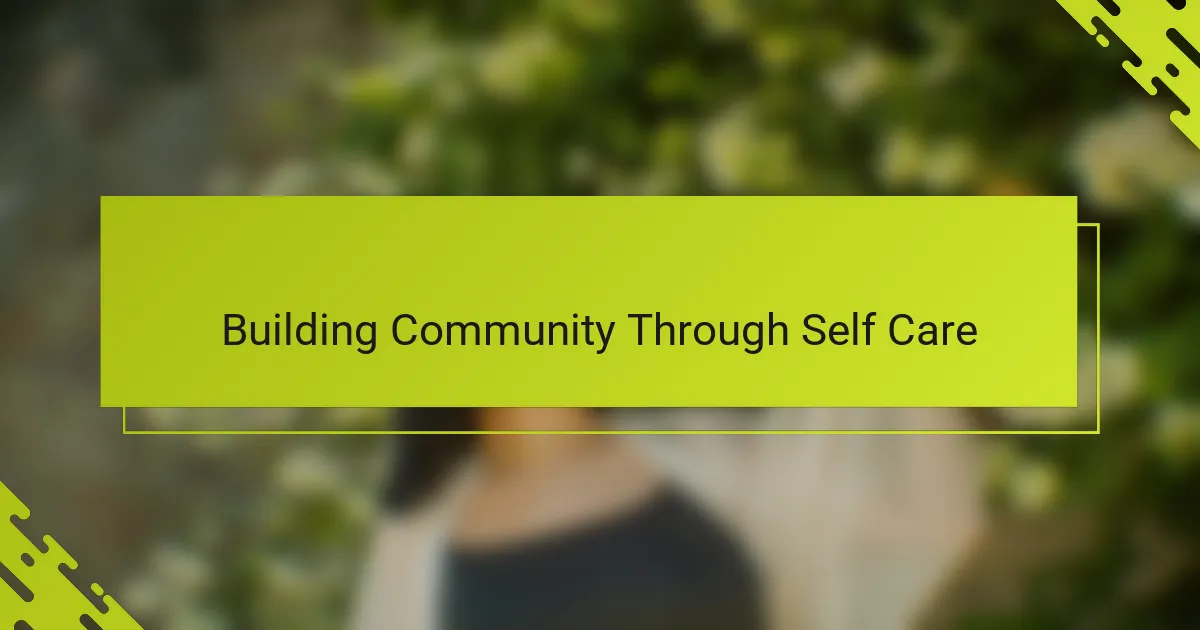
Building Community Through Self Care
Building community through self care feels deeply connected to Louise Hay’s idea that healing ourselves creates ripples beyond just our individual lives. I’ve noticed that when I commit to my own well-being, it strengthens my capacity to show up authentically for others—like my self-love becomes a gift I can share freely. Have you ever sensed that your own care can actually inspire and hold space for those around you?
There’s something powerful about gathering with others who prioritize self-care as a collective practice. In my experience, these moments foster trust and vulnerability because we’re not just supporting each other externally but honoring our inner journeys together. It turns self-care into a communal language—one that says, “You are seen, you are worthy, and you are not alone.”
Sometimes I wonder how much richer our communities could be if self-love wasn’t viewed as an individual task but a shared foundation. What if every act of kindness to ourselves created stronger bonds between us? Louise Hay’s teachings remind me that when we nurture ourselves, we build a more compassionate and resilient circle that can weather anything.
